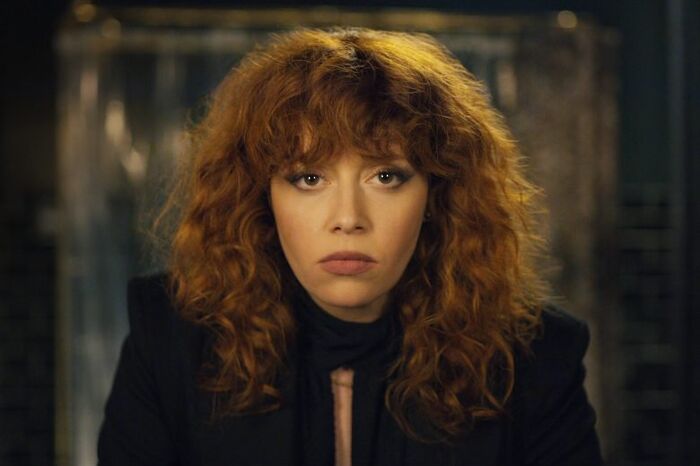Dracula can’t have its stake and eat it
Sam Warren-Miell discovers overindulgence and excess in the wrong places in the BBC’s new half-dead Dracula adaptation
Content note: this article contains a brief mention of rape.
For the first thirty minutes of Mark Gatiss’ and Steven Moffat’s new adaptation of Dracula, I couldn’t help thinking about how much more effective Werner Herzog’s treatment of the same material was in his 1979 Nosferatu the Vampyre. That film’s deliberate pacing allows us to share in real time Jonathan Harker’s growing sense that something is not right about his host. (It helps that Klaus Kinski is the one actor in the history of cinema who most seems like he might actually sleep in a coffin.) In the 2020 version, the first few nights at the castle feel like preamble to be whisked through half-apologetically so that we can get to Gatiss’ and Moffat’s departures from Bram Stoker’s novel. ‘Look, it’s a spooky castle and a creepy old fellow, you know this part, now let’s get to the good stuff.’
"These writers are, at their worst, the travelling salesmen of television: whatever you might be looking for, they have the product to please."
I think it's this lack of confidence in the source material - disguised as wry postmodern revisionism - that ultimately hamstrings Dracula. Films like Herzog’s - as well as Tomas Alfredson’s Let the Right One In and Elias Merhige’s Shadow of the Vampire - have demonstrated that, even in our profoundly desacralized age, the myth of the vampire still has something quite fundamental to say about how and why we experience terror. Dracula the novel is the complex and somewhat incohesive product of a man who was at the same time a Christian liberal, a closeted homosexual, an amateur folklore enthusiast and a fin-de-siècle proselytiser for scientific progress.
This new version inserts a sassy nun (in the place of Van Helsing) who cracks wise about her lack of belief, and a scene in which her Mother Superior is decapitated in the middle of a speech about the power of Christian faith. It only reminds me that what is really undead in 2020 is that fashionable middlebrow British atheism that never bothers to ask why the symbol of the cross might, for some people, hold the power that it does in the novel Dracula. Or, if it does, only to answer: ‘because those people are stupid’.
Its defenders will be quick to point out that this version’s irreverence is precisely its point. Fans of the Gatiss/Moffat style will no doubt enjoy Claes Bang’s jocular Count, the Danish actor resembling Bela Lugosi at his most handsome. The production as a whole was at its best when it embraced the cheapjack. I loved the stop-motion zombie Harker meets in the shadowy recesses of the castle, lifted straight out of the Evil Dead series. And in this same scene we get, in quick succession, an overt nod to The Exorcist and an even more overt recreation of the most famous shot from the 1958 Hammer Dracula. At this point I felt that the production was pandering to the viewer. And if it is, many of Gatiss’ and Moffat’s offerings in this show - from the tea-spilling nun to the title character’s inexhaustible arsenal of punny one-liners - may also begin to resemble so many exercises on viewer approval. These writers are, at their worst, the travelling salesmen of television: whatever you might be looking for, they have the product to please.

Indeed, the fundamental problem is that Gatiss and Moffat want their Dracula to be at once an unabashedly campy romp, a genuinely scary horror, and an emotionally-resonant romantic tragedy. Elements like the disturbing implication that Dracula’s life-draining attacks are actually a form of brutal rape don’t at all resonate in tone with a Count who we’ve just heard, in full hammy glory, utter the line: ‘The people here are so... flavourless’.
On the other hand, playful horror abandon isn’t allowed to flourish when its creators have to ensure constantly that their audience knows that they are Very Clever and really above this kind of thing. The Evil Dead films work because they commit so utterly and unselfconsciously to their relentless, gory world, and don’t stop to wink at us or pat themselves on the back. Gatiss and Moffat are too arch and too keen to display their own intellect to do anything like that, but nor do they have enough faith in their powers as writers of horror or drama (for good reason, perhaps) to commit to an unironic telling of the story.
Every adaptation of Dracula takes liberties with the source material. The best find in Stoker’s enduring, reflectionless creation something strange, something occulted in our own histories, reflected back at us. This one is too busy admiring itself in the mirror
 News / Caius mourns its tree-mendous loss23 December 2025
News / Caius mourns its tree-mendous loss23 December 2025 Comment / Yes, I’m brown – but I have more important things to say22 December 2025
Comment / Yes, I’m brown – but I have more important things to say22 December 2025 News / Cambridge welcomes UK rejoining the Erasmus scheme20 December 2025
News / Cambridge welcomes UK rejoining the Erasmus scheme20 December 2025 News / CUP announces funding scheme for under-represented academics19 December 2025
News / CUP announces funding scheme for under-represented academics19 December 2025 News / King appoints Peterhouse chaplain to Westminster Abbey22 December 2025
News / King appoints Peterhouse chaplain to Westminster Abbey22 December 2025










